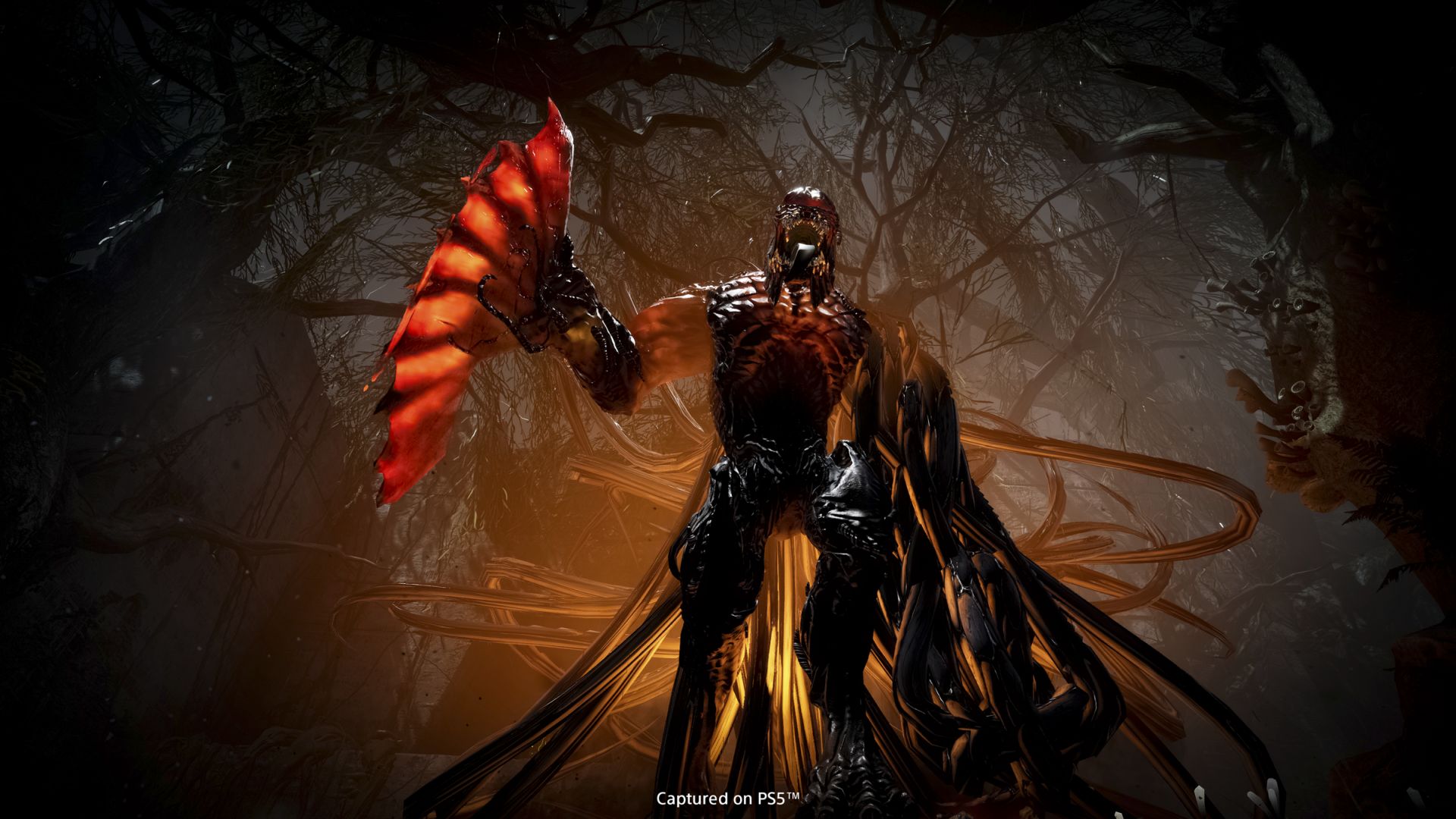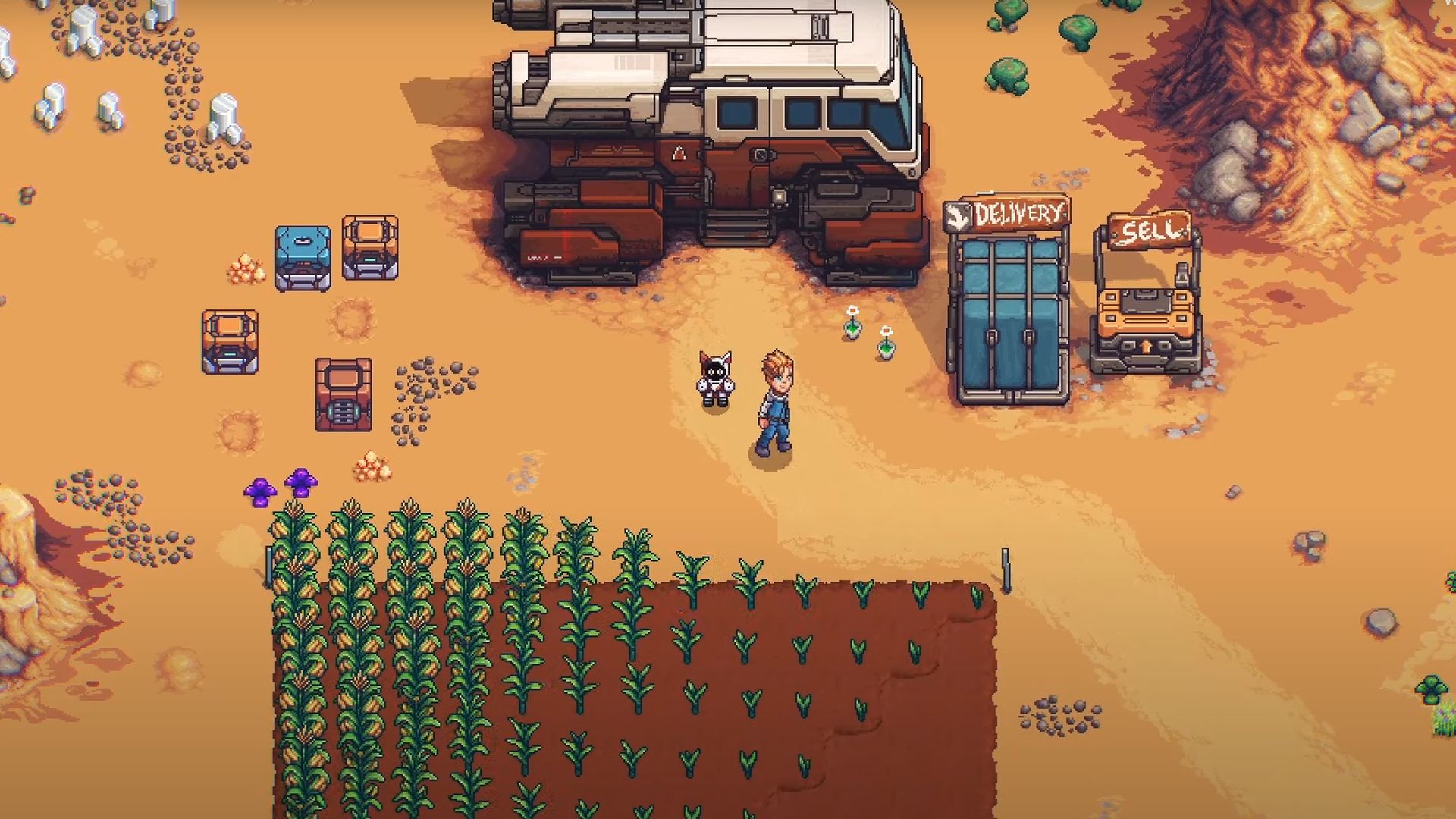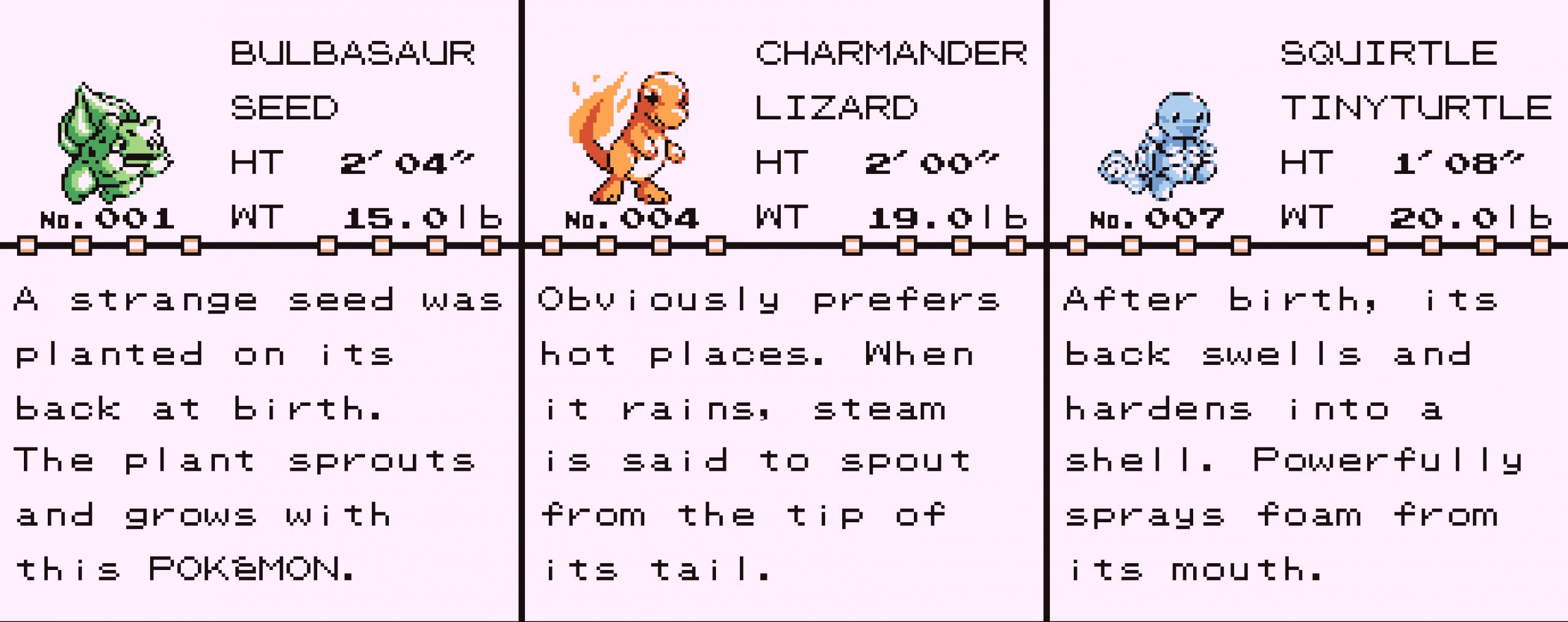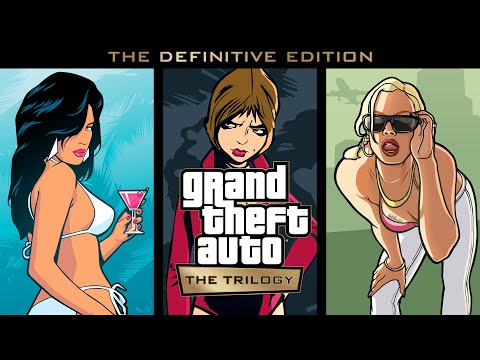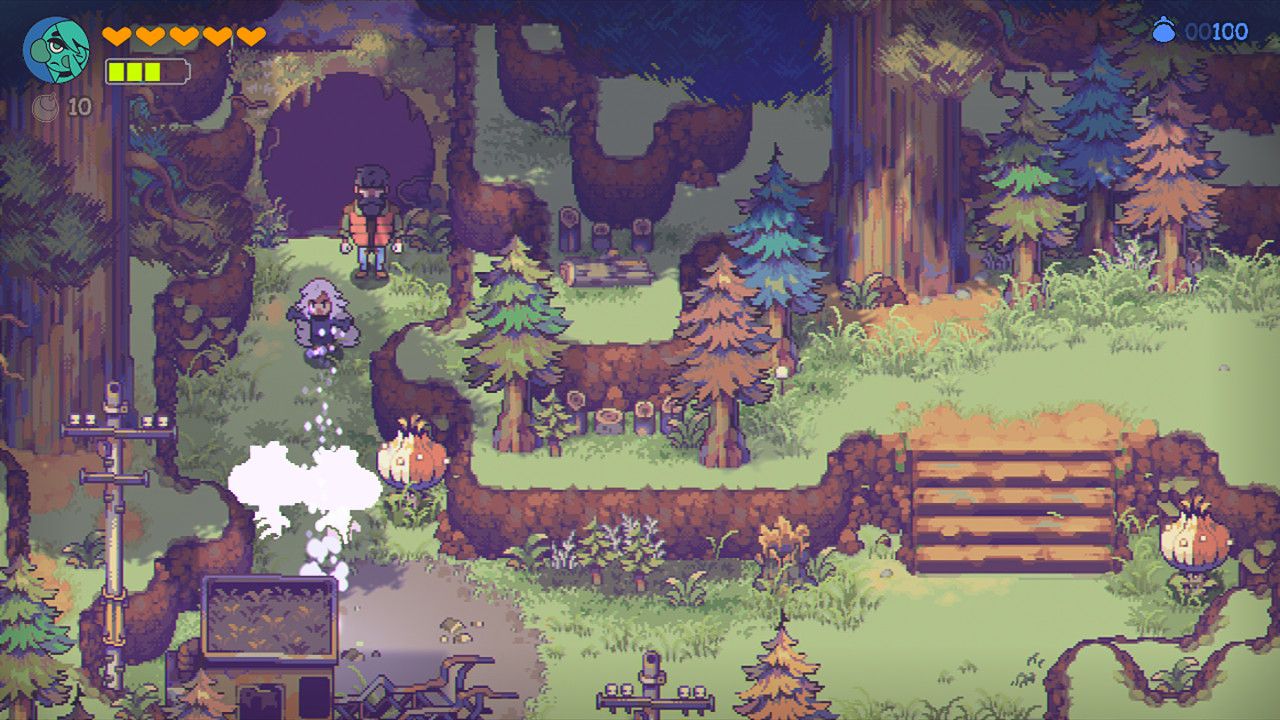
Imagine you were a miner destined to live out your days in an amiable but ultimately unadventurous subterranean civilisation, battering rocks in solitude as the world around you becomes gradually smaller. All of a sudden, your lonely meandering leads to you cross paths with a strange little girl bearing even stranger powers. Together, you barrel upwards to Eastward, an apocryphal but oh-so-real and sprawling world packed with weird and wonderful mysteries – your insignificant existence immediately transforms into a plight against misinformation in the name of justice and truth.
Eastward, to put it plainly, is charming. It is personable and warm and quietly confident in a way that lends it the ability to become palpable without ever trying overly hard. On one hand, it screams classic 2D Zelda – there are monsters and dungeons and puzzles and goofy dialogue that is somehow silly and witty at the same time. On the other, however, Eastward is comparable to Zelda in form and tone alone – once you get past the initial similarities, which you will do at blistering pace, this world will lodge its hooks in you like one of the weird Eastwardian crows that descends on you like a vulture on rotten meat.
Related: Tales of Arise Preview – A Worthwhile JRPG Evolution
You play as John, the aforementioned miner of few words whose 40 years beneath the Earth have been spent in involuntary ignorance. But you also play as Sam, the young and mysterious girl who changes both John's perception of life and purpose in it. It's this combination – this partnering of a man with a frying pan fit to put a warhammer to shame and a girl with wicked powers that should be at odds with human capabilities – that allows Eastward to supersede its influences and become its own distinct story.
I'm not usually one to suggest that a game is defined by its moment-to-moment play – there are so many other elements to consider that extend far beyond what happens when you press this button instead of that one. Eastward, however, is defined by exactly that – its core gameplay loop is so integral to the overall experience that everything else, while admirable in its own right, quickly becomes derivative of how and why you act, and how and why that affects the world around you.
I’ve played quite a bit of Eastward, but for this preview I’ll be focusing on one specific section around ten hours into the game. After arriving at rocket scientist Alva’s mansion, John and Sam are tasked with venturing into Quake City, a sort of dieselpunk array of dumpsters and disease populated solely by ungodly creatures who know nothing more than senseless violence. You’re here to find the golden snapper, a legendary fish that, for some reason, is essential to John and Sam’s quest. Despite being little bigger than a regular kipper, snagging this aquatic anomaly is easier said than done.
Combat in Eastward is relatively clear-cut – Sam can launch psychokinetic blasts to stun enemies, while John pummels them with a frying pan, lambastes them with bullets, or sets them ablaze with a petrol-guzzling flamethrower. In the spirit of this being inspired by traditional Zelda, you’ve also got a bomb bag – aside from using explosives as a conventional means of shattering destructible obstacles, you can also wallop them across chasms to blow up baddies in true Eastwardian style. This is all well and good, but it’s methodical in a way that feels intentionally automatic – you’re never really forced to think about combat, because it generally just serves as a backdrop for texturing Eastward’s primary mode of progression.
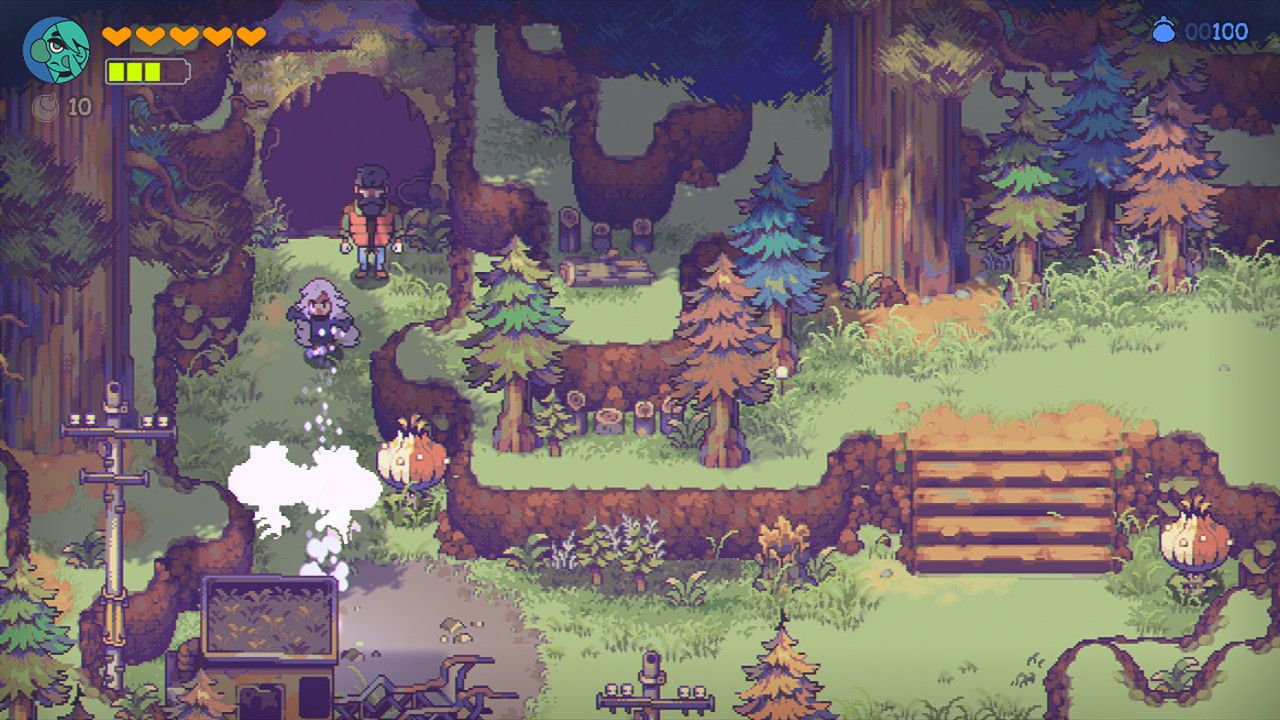
The real place where Eastward sings is in its puzzle design. Quake City is not overly complex – you’ll rarely scratch your noggin for more than a couple of minutes before figuring out what you need to do. But this brevity of decryption is why puzzling is so effective here. Individual dungeon levels are kitted out with multiple interconnected puzzles, most of which are simple but require you to use both John and Sam’s respective abilities. Sam launches bolts of energy at what look like giant, floral onions so John can march forward and clock Venus fly trappers and intimidatingly large frogs over their idiot heads with a weathered and likely still hot frying pan – you also use it at regularly interspersed makeshift kitchens in order to cook health-restoring food. It’s worth noting that cooking in Eastward is refreshingly coherent to the core experience compared to most other games with similar systems, because fridges and stoves dotted throughout maelstroms of debris offer a kind of homely, natural respite. But again, the puzzles are what will captivate you.
After making your way to a certain point in a dungeon, you’ll get one of several quirky little cutscenes. John rarely offers more than a gruff and grisly grunt, although Sam’s ever-increasing indulgence in weirdness makes her a character worth caring about. Quake City ends with the pair happening upon a pre-fallout jeep, which – miraculously! – still works as a pseudo-ship. As in, you drive the jeep through otherwise untraversable water in order to reconvene with William and Daniel, a purple-haired rogue and his amazing robotic friend.
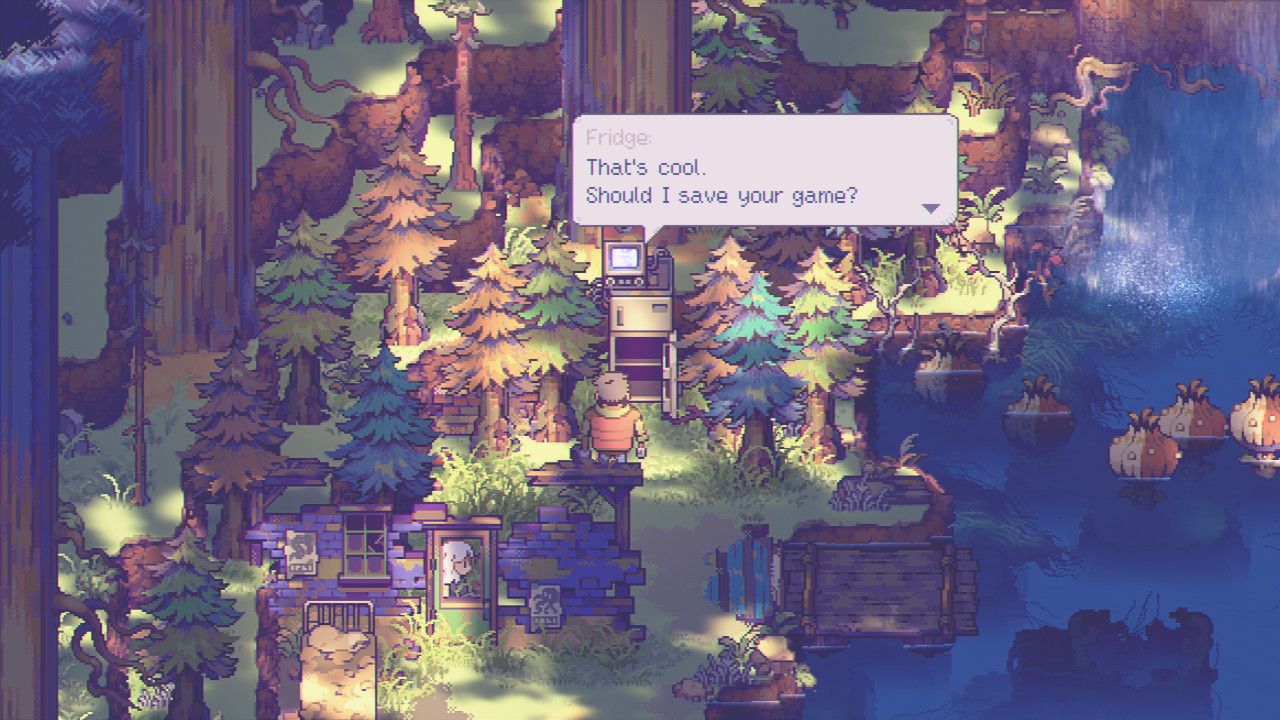
That last sentence should tell you quite a lot about Eastward – it is absurd to the point of near nonsense. There are sentient machines and curious creatures and impossible feats of architecture – and yet, it feels coherent because of its unafraid commitment to this absurdity. When I booted up Eastward, I was unsure of what to expect – another Zelda-like that ticks all the boxes but fails to escape the shadow of its influence. The thing is, Eastward isn’t even in Zelda’s shadow – it’s quaintly watching it from across the way, studying it and reappropriating it in order to learn from its strengths without relying on them. It’s obviously not on par with Link’s Awakening or Minish Cap – but it is, in its own right, much better and brighter than a number of games that unsuccessfully tried to co-opt those titles more brazenly.
The enduring feeling I have now, writing this the afternoon after I played through one of Eastward’s dungeons, is that I really want to play more Eastward. I could write lots more words about why that’s the case, but articulating that feeling for what it is is probably much more telling in and of itself. Here we have a charming little indie that could extend well beyond its means if it reaches the audience necessary for doing so – by which I mean, when you get a chance to try out Eastward for yourself, please do.
Next: Skyrim Mods Are Hurting Because Of Nexus' New Policies
